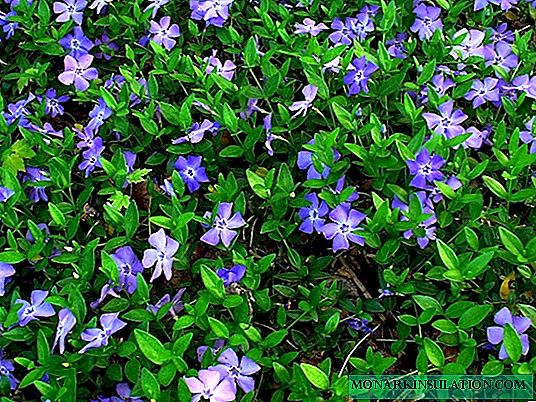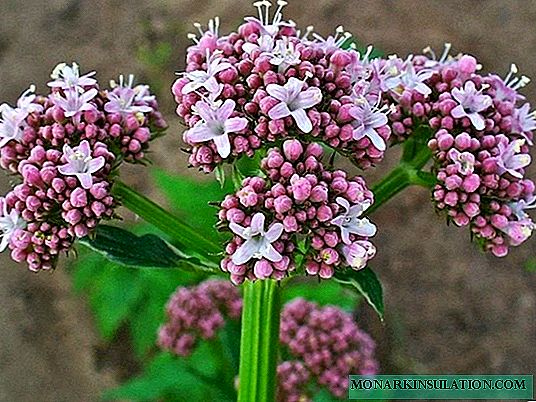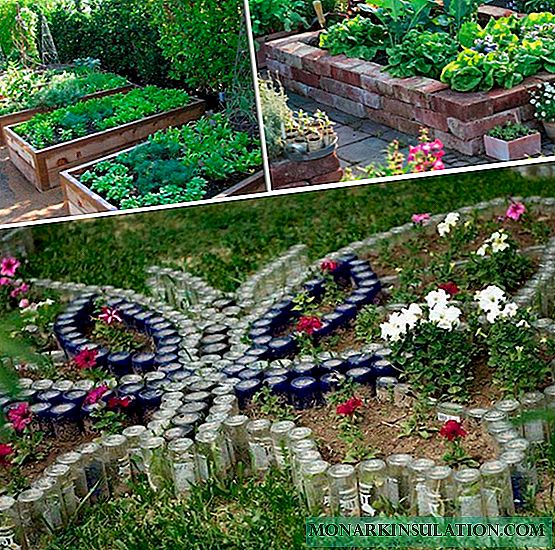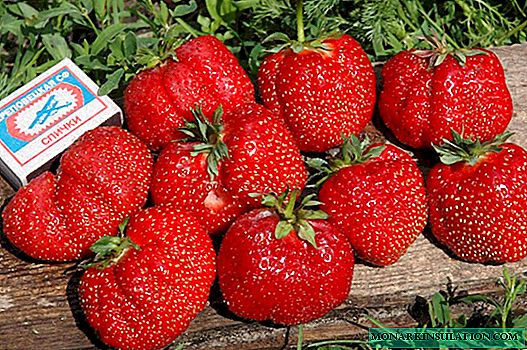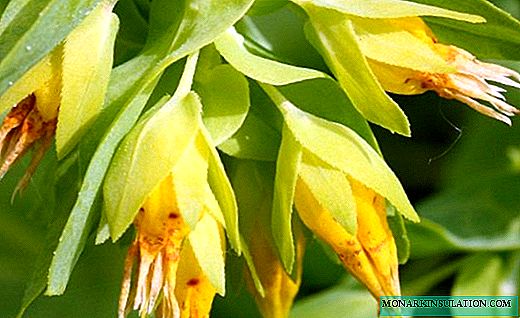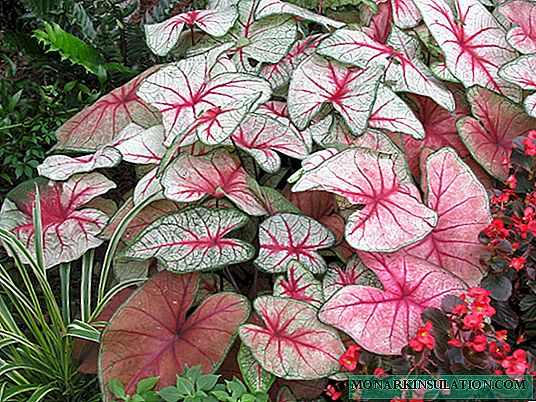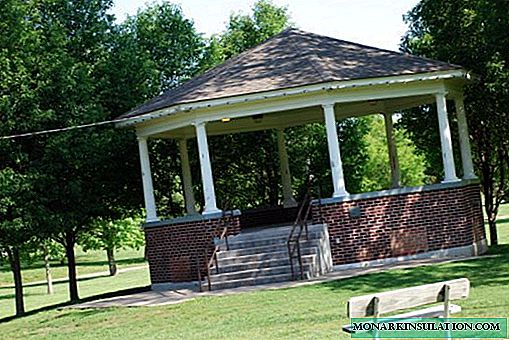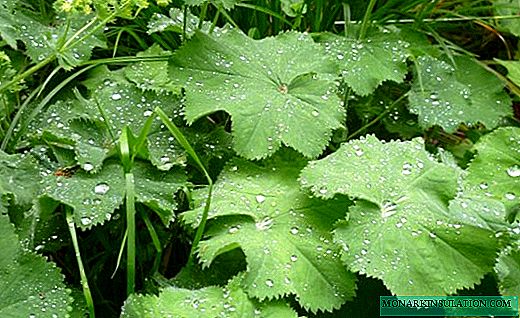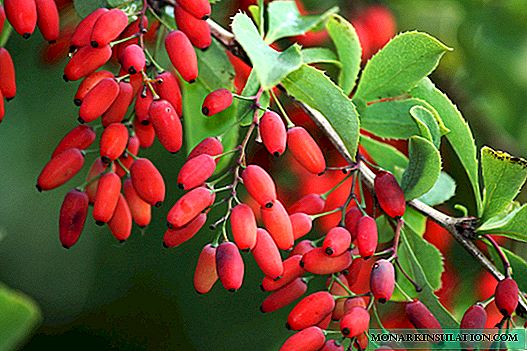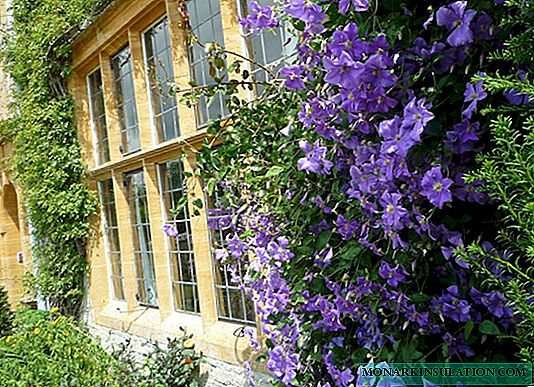
In the creation of the original design of the garden plot, vertical gardening, as one of the types of plant and flower decoration, occupies one of the leading roles. Proper selection of plants for vertical gardening will allow you to form a green mass, which will not only serve as a decoration of the facade, but also create the illusion of a green environment. This method of gardening is widely used in landscape design for decoration of small architectural garden forms: arbors, pergolas, trellises, terraces, slopes, fences, stone walls, awnings ...
What good is vertical gardening?
Due to the variety of colors, forms of climbing and climbing plants, colors and textures of their leaves, as well as the ability to easily be pruned and formed, the embodiment of a wide variety of design projects is possible.

The main advantage of this landscaping method is the ability to quickly and easily arrange living spaces with large height and width of space
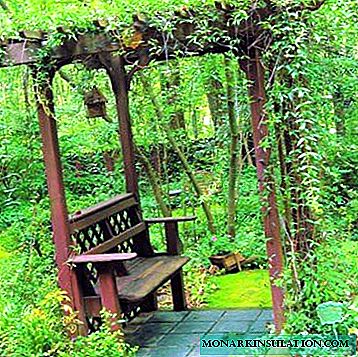
Dense foliage increases humidity and creates a cool, which is especially valuable in the hot months
Some of the main advantages of this type of gardening include:
- A maximum of decorativeness in a small area. Vertical gardening is an affordable way to decorate buildings, structures and other unsightly utility rooms, as well as create a unique, memorable look of structures. Thanks to the use of climbing and climbing plants, while maintaining the scale of the site, the green area can be increased several times.
- Easy to care. Plants for vertical gardening are easy to maintain: eliminating the need for weeding and mulching the soil, weed control.
- Regulation of thermal conditions. Plants are the curtain of the building: reflecting the heat of the sun, they protect its walls from excessive heat. Climbing and climbing plants reduce the penetration of polluted air and dust into the room.
This allows you to use plants for vertical gardening in the creation of cozy corners in the garden, protected from the sun, noise and wind.
A new direction in landscape design can be called live paintings. Read about it: //diz-cafe.com/ideas/zhivye-kartiny.html
The choice of plants depending on the cardinal points
The main determining factor for the optimal choice of plants for decorating the facade of the structure is the side of the world, on which the landscaping object is drawn.
For the northern walls of the building are perfect: girl’s grapes, henomeles, ivy, camellia, mock, forsythia, elliptical harry, beautiful capuchin, horizontal cotoneaster.

Easy-rooted and picky grape vine grapes able to braid a sufficiently large surface area in 1-2 years
On the southern walls in all its glory they will show themselves: honeysuckle, clematis, wisteria, rhododendron, zeanotus, cactus, campsis, callistemon, climbing rose, Chinese schizander, actinidia colomicta.
They feel comfortable on the eastern side of the buildings: nasturtium, pyracantha, Japanese kerria, tree hydrangea, large-leaved pliers, as well as sun favorites like girl’s grapes, clematis, ivy, henomeles.
The western part of the wall can be decorated with: nightshade, hops, blue passionflower, grapefruit, Magnolia large-flowered, California carpentery, as well as varieties of camellia, wisteria, chionanthus.

Scourges of clematis with lush greens will add delicacy to any design, and chic flowers of the most incredible shades will delight throughout the summer
If we take as a basis design features that are originally planned to be decorated with living plants, then for decorating arches and pregles they are ideally suited: honeysuckle, clematis, curly nightshade, as well as various types of clematis, wisteria, and beautiful roses.
You can learn more about how to create a garden arch for flowers from the material: //diz-cafe.com/dekor/sadovaya-arka-dlya-cvetov.html

Roses are favorites in popularity among gardeners: climbing varieties effectively decorate all kinds of arches and pergolas
For the decoration of trees, the following applications will be very successful: Kuanje grapes, clematis (Tagunsky and mountain), honeysuckle, scaly hydrangea.
For good development and abundant flowering, both climbing and climbing plants need fertile, slightly acidic soil.

When designing a design, it is advisable to use only similar plant species on a small site, which will avoid the excessive diversity of thickets and the randomness of the picture, devoid of harmony
Also, material on the most unpretentious varieties of climbing plants will be useful: //diz-cafe.com/ozelenenie/liany-dlya-sada.html
Some flowering varieties
Flowers for vertical gardening are widely used in all European countries. All kinds of hanging baskets and flowerpots, flower towers and vertical flower beds are very popular in large cities where glass and concrete dominate and there is so little room for living plants. As a decorative design of building facades, small-flowered ampelous plants are especially impressive, pleasing with lush, plentiful flowering.
The main decoration of hanging baskets, flowerpots and flower pots is traditionally become the summer people, distinguished by the duration and luxury of flowering. A worthy decoration of a flower garden can be: hybrid forms of petunia, lobelia, nasturtium, verbena, begonia and ivy pelargonium.

When selecting and creating compositions from living plants for decorating architectural structures, the peculiarities of building structures should be taken into account: plants should first of all emphasize the advantages of the building, and not close them
Using the technique of multilevel placement of flowering plants, creating many variations of compositions, you can get the effect of continuous lush flowering.

